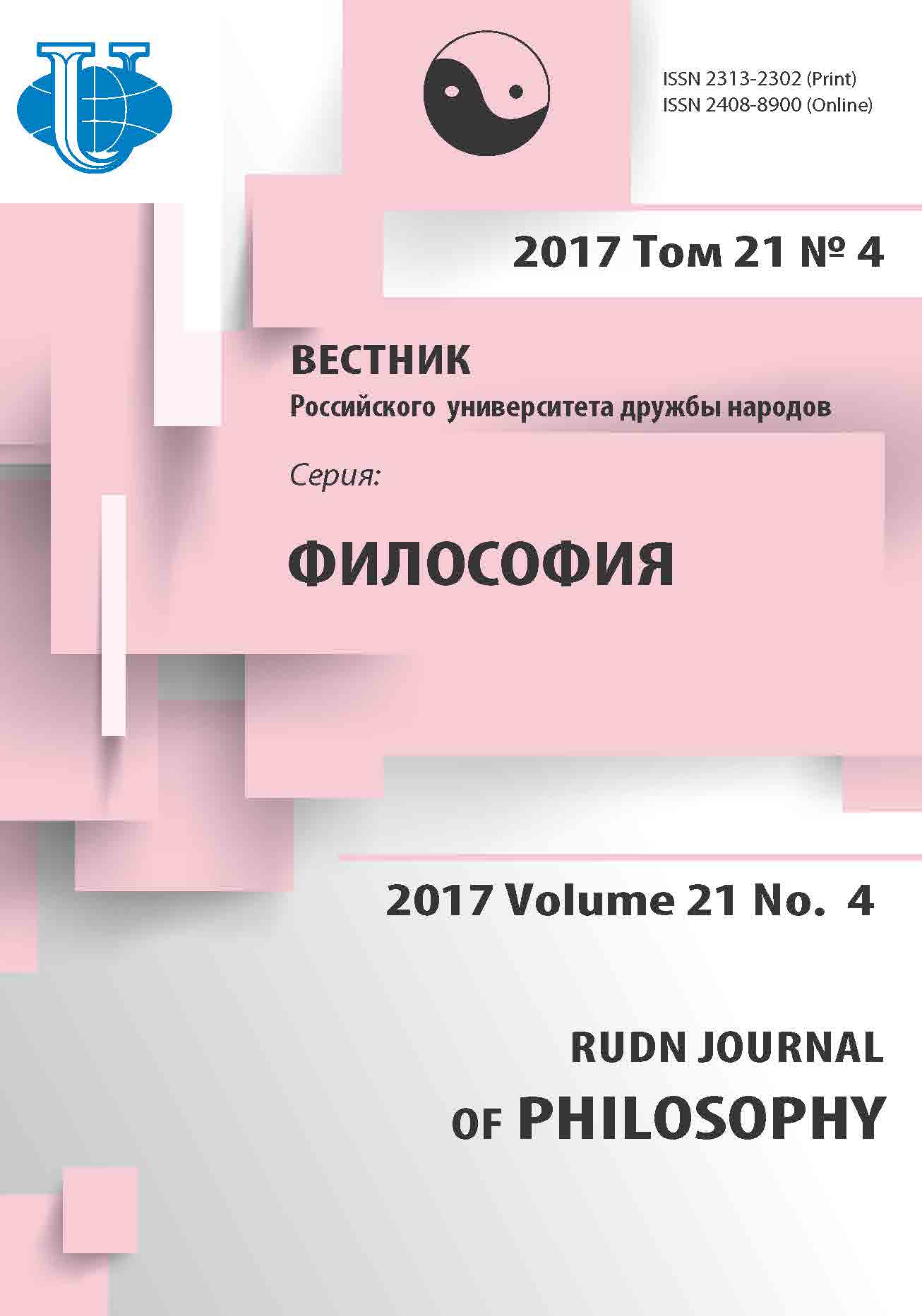ON METHODS OF TRANSLATION OF PHILOSOPHICAL DOCTRINES IN HISTORY OF INDIAN PHILOSOPHY
- Authors: Paribok AV1, Pskhu RV2
-
Affiliations:
- Saint Petersburg University
- RUDN University (Peoples’ Friendship University of Russia)
- Issue: Vol 21, No 4 (2017)
- Pages: 524-533
- Section: Articles
- URL: https://journals.rudn.ru/philosophy/article/view/17663
- DOI: https://doi.org/10.22363/2313-2302-2017-21-4-524-533
Cite item
Full Text
Abstract
The paper deals with the specific features of the means of translation of the philosophical knowledge in the Ancient and Middle Age History of Indian Philosophy. Translation is defined as the most integrating type of transferring of culture from one human being to another. In other words, such a translation is an interiorization by a human being of the complex of ideas, philosophical values, algorithms of action, behaviour and thinking. The authors of the article take philosophy as a complicated and developed sphere of knowledge, which demands translation, not merely a simple transferring the content of a philosophical doctrine. The article deals with the question about the means of such a translation in the history of the Indian philosophy. The analysis of the key-fragments of “Chandogya-upanishada” discovers the basic specifics of Indian methods of translation, which includes the division of the theoretical and methodical texts.
Keywords
About the authors
A V Paribok
Saint Petersburg University
Email: paribok6@gmail.com
7/9, Universitetskaya nab., 199034, Saint Petersburg, Russian Federation
R V Pskhu
RUDN University (Peoples’ Friendship University of Russia)
Email: r.pskhu@mail.ru
6, Miklukho-Maklaya Str., 117198, Moscow, Russian Federation
References
















